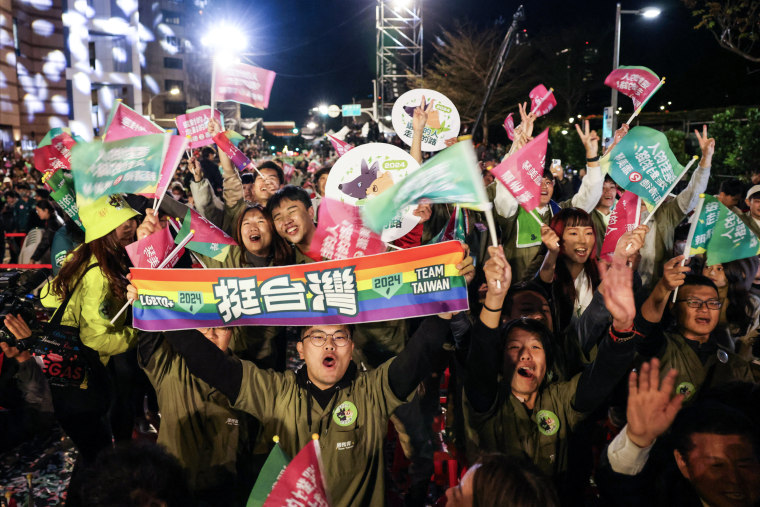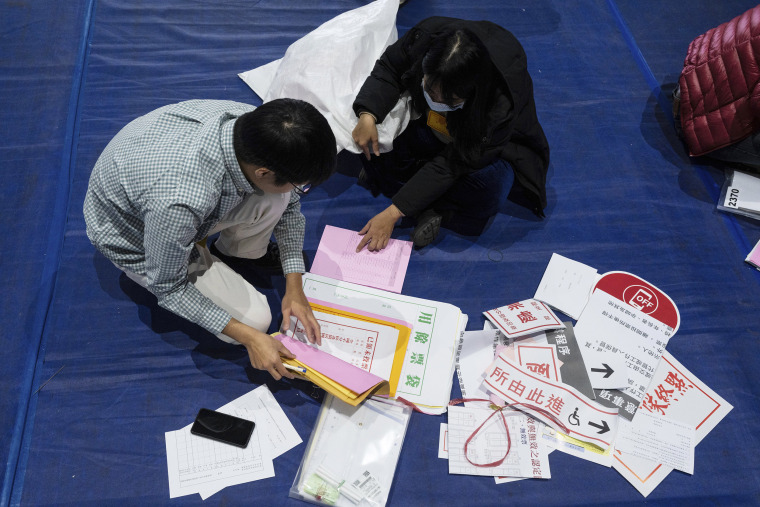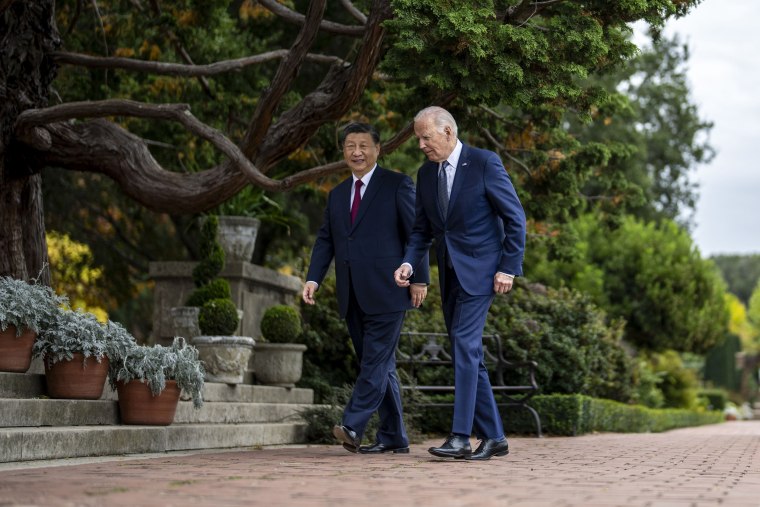Vice President Lai wins vote, defying China
TAIPEI, Taiwan — Voters in Taiwan elected Vice President Lai Ching-te as their next president on Saturday, defying warnings from Beijing not to support a candidate it has called a separatist and a “troublemaker.”
The election, which China had described as “a choice between war and peace,” could test recent efforts by Beijing and Washington to repair relations that in recent years have fallen to their lowest point in decades. The status of Taiwan, one of the strongest democracies in Asia, is among the most sensitive issues between the two superpowers, and focus will now turn to any potential show of force from Beijing in response.

China claims Taiwan as its own territory and has not ruled out the use of force against the island, while the U.S. is Taiwan’s most important international backer. The majority of Taiwan’s 23 million people are in favor of maintaining the status quo, neither formally declaring independence nor becoming part of China.
Lai’s victory extends the eight-year rule of the Democratic Progressive Party (DPP), which is considered the least friendly to Beijing. Relations between Taiwan and China have deteriorated under President Tsai Ing-wen, who was first elected in 2016 and is limited to two terms.
Voters in Taiwan, especially younger ones, were concerned not just with China policy but with economic issues such as unemployment, housing costs and income inequality.
Lai won with 40% of the vote, compared with 33% for Hou Yu-ih of the main opposition party, the Kuomintang, and 26% for Ko Wen-je, founder of the populist Taiwan People’s Party. Hou and Ko, who both favor closer ties with Beijing, had argued that the DPP’s policies toward China were too confrontational.
It is the first time in Taiwan’s almost 30 years as a democracy that the same political party has won three consecutive terms. But the DPP lost control of the legislature, which experts say could constrain Lai’s policy options.
At a news conference after his victory on Saturday, Lai said he would continue foreign affairs and national defense in line with Tsai’s policies. China cut off direct dialogue with Taiwan after she was elected in 2016, and has rebuffed offers of talks with Lai as well.
Lai, 64, who will take office for four years starting May 20, said he hopes that China will “understand that only peace will benefit both sides of the strait. In addition, global peace and stability depends on peace in the Taiwan Strait. We hope that China understands the situation, because China also has a responsibility.”

After the election on Saturday, China’s Taiwan Affairs Office said Taiwan was part of China and that the election could not “stop the general trend that the motherland will eventually be reunified.”
It had earlier warned Taiwan voters against supporting Lai, describing him as a “stubborn Taiwan independence advocate” who if elected would promote separatist activities and “create a dangerous situation” in the Taiwan Strait.
Lai’s victory was welcomed in the U.S., which Secretary of State Antony Blinken said was “committed to maintaining cross-Strait peace and stability” in a statement congratulating Lai.
The Congressional Taiwan Caucus said it looked forward to working with Lai and that “in the face of escalating threats to Taiwan’s democracy and security, it is imperative that the United States remains steadfast in support of the people of Taiwan and our shared commitment to democratic values.”
House Speaker Mike Johnson said in a post on X that he would be asking the chairs of the relevant House committees to lead a delegation to Taiwan after Lai’s inauguration in May.
President Joe Biden said Saturday that the U.S. — which recognizes Beijing as the sole legitimate government of China but maintains unofficial relations with Taiwan under its longstanding “One China” policy — does not support Taiwan independence.
The White House said this week that after the election, the U.S. would send an unofficial delegation to Taiwan, in what a senior Biden administration official said was an effort to manage tensions and prevent inadvertent conflict.
The question now is how China will respond. Beijing has in the past fired missiles and staged military exercises in response to developments in Taiwan it doesn’t like, and Lai’s victory could bring another show of force.

Taiwan’s government had already accused China of…
Read More: Vice President Lai wins vote, defying China

